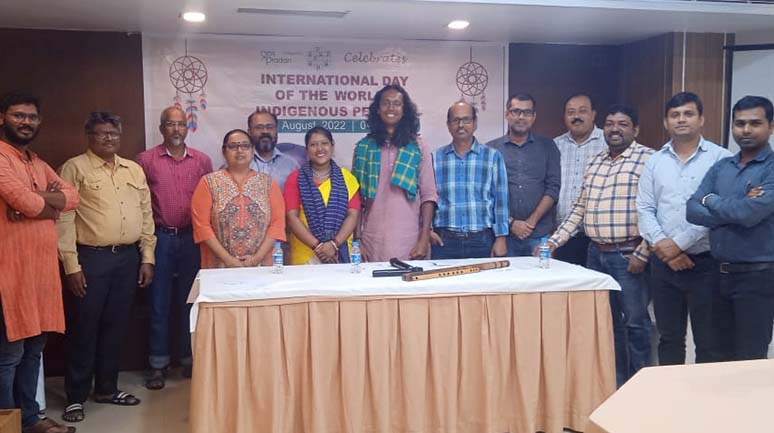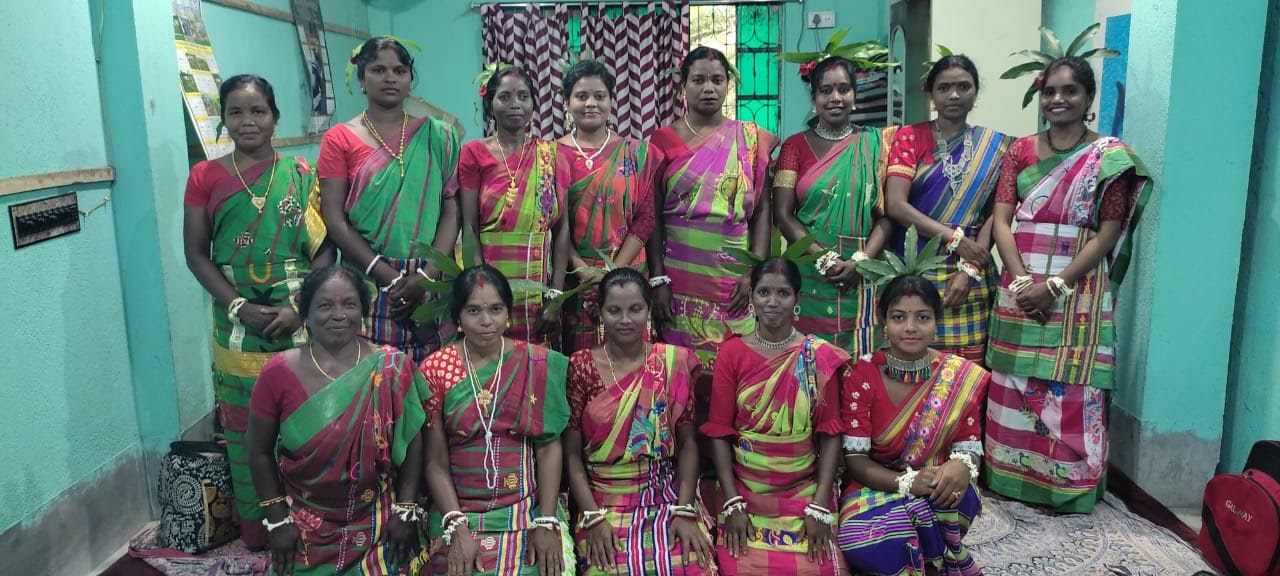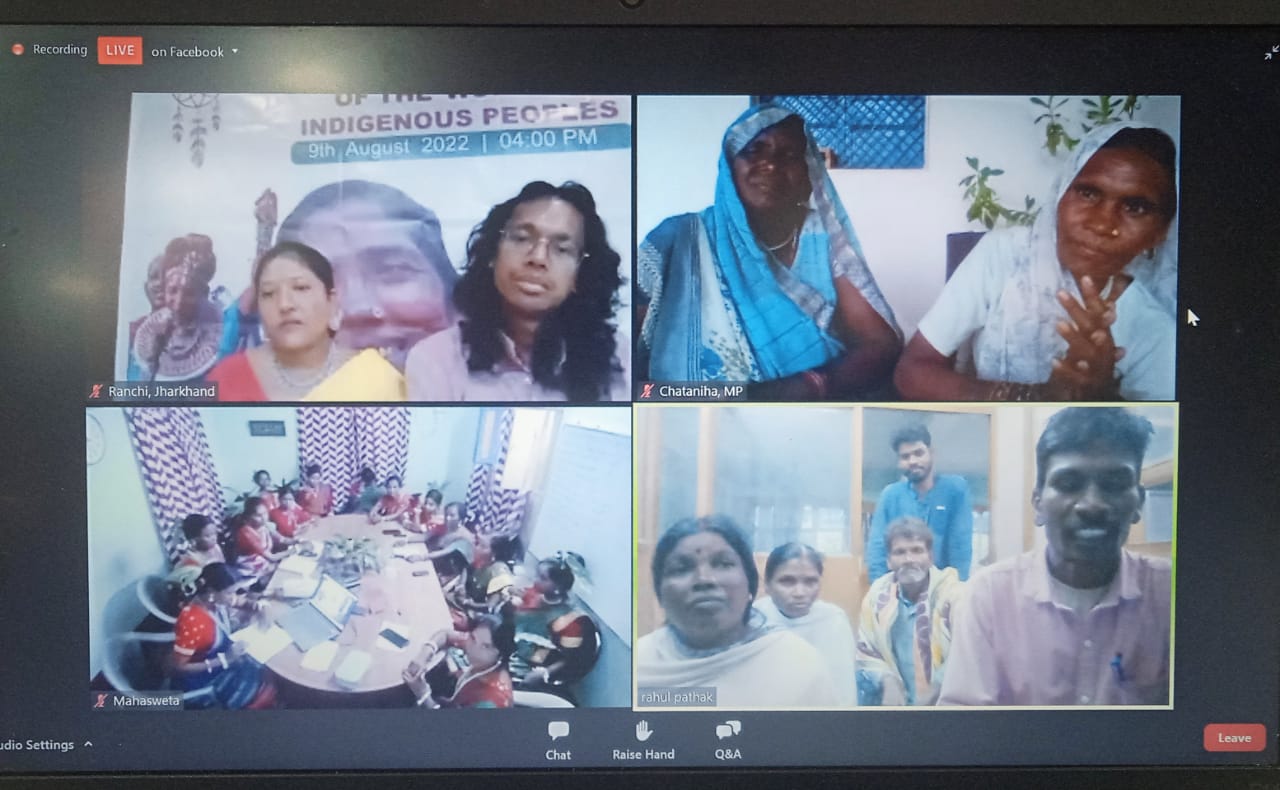International Day of the World’s Indigenous Peoples: August 09, 2022


Every year, August 9 is commemorated as the International Day of the World’s Indigenous Peoples. The day is celebrated to recognize the inheritance of the indigenous communities, the impact of colonialism on them, and acknowledge the culture and contributions of these communities. This year, the United Nations (UN) decided to dedicate the day to reclaim the role of Adivasi women in the preservation and transmission of traditional ancestral knowledge.
In the world today, where we are victims of the wrath of nature on which we have committed, and continue to commit, mindless atrocities, the voice of the indigenous people may bring about a healing touch. In tune with the fundamental ethos, the celebrations this year sought to recognize and underscore the message of the Adivasis on shared living, egalitarianism and trusteeship. It also focused on how ¬¬Adivasi women are protecting knowledge in their respective contexts.
PRADAN organized a two-hour online event on August 9, 2022, in recognition of the contribution of indigenous peoples, towards the preservation of the environment, traditional knowledge, culture and values of togetherness. On this occasion, PRADAN pledged to reclaim the space and voice of the Adivasi woman. The celebration honoured the message of the indigenous people to the world communities on shared living, egalitarianism and trusteeship. The moderators of the event were Gunjal Ikir Munda, tribal rights activist and Assistant Professor, Jharkhand Central University, and Deepalaxmi Munda, member of Dr. Ram Dayal Munda’s troupe for culture conservation, Ranchi.
In his welcome message, Saroj Mahapatra, Executive Director of PRADAN, emphasized the importance of celebrating ‘Adivasi Divas’ every year. He spoke of the Adivasi life and culture, and the need to recognize how they have preserved the ecosystem. He urged participants, “Let’s celebrate the event and recognize the contribution of the Adivasi people.”
This was followed by a melodious rendering of a Santhali song by Gunjal Ikir Munda and Deepalaxmi Munda. The song speaks of the search of human beings for their own roots.
The moderators shared the significance of August 9, which marks the day of the first meeting of the UN Working Group on Indigenous Populations in Geneva in 1982. The UN Declaration, in 1994, of the International Day of Indigenous Peoples aimed at strengthening global awareness of the role of indigenous people and acknowledging their contribution and accomplishment. This encouraged people across the globe to spread the message to recognize the rights of indigenous people in rural and urban areas. Considering that PRADAN has been working with the Adivasi community, this event was a recognition of the contribution of indigenous peoples across the world in preserving their legacy.

The Adivasi women from Hirbandh block, Bankura district, West Bengal, presented a song in Santhali about their culture, ethos and livelihoods. They remembered the systemic oppression they have had to face and acknowledged the legacy of their communities by way of their political, economic and cultural knowledge systems. They shared about the importance of the sal tree, which is worshipped and considered to be the abode of the village deity, Goddess Sarna. The sal tree holds a special place in their culture and tradition because it provides them with multiple products, in terms of leaves, fruit and several medicines.
The women said that farming is their main source of livelihood; they are now challenging the taboos, stemming from gender inequality in farming. Women have been playing a critical role in changing the mindset of people about the empowerment of women, gender equality and equitable development in the area. Their active participation has resulted in significant progress in decision-making processes and in sharing equally the benefits from biodiversity and natural resources.
The tribal women enhance learning and provide important insights in the transmission of traditional knowledge. They shared with pride about their rich cultural and social traditions, and the diverse food systems, deeply embedded in locally available resources. They are a repository of comprehensive knowledge about different herbs and plants and are acquainted with the use of plants and plant products for curing various ailments.
The Adivasi women spoke of their festivals as a way of creating awareness of nature in people. Surrounded by other dominant cultures and traditions, they have been protecting and preserving Santhali language and culture by speaking their own language and educating their children about Santhali culture. The moderators summarised that these powerful women have encyclopaedic knowledge of their own culture, waiting to be tapped and put in use.
For centuries, indigenous people have been custodians of the planet’s natural resources. They have lived on Earth without damaging or harming the forest. They have deep respect for nature, and have established a symbiotic relationship with forests, water, rivers, land and mountains.
Development activist, Gangaram Paikra resonated with what was shared and spoke of his experiences with indigenous communities. Gangaram belongs to Jagannathpur village in Lakhanpur block, Surguja district, Chhattisgarh. He remembers the Mainpath Bachao Andolan in Surguja. He joined an organization called PRABHASH and formed the Chaupal Gramin Vikash Prashikshan Evam Shodh Sansthan, focussed on working in tribal areas. He spent his life working for tribal people’s rights over natural resources and sustainable livelihoods. Because of his rich field experiences with tribal communities, he was bestowed with the Shahid Veer Narayan Singh Memorial Award by the Government of Chhattisgarh, not once but twice. He emphasized the disastrous impact that the indiscriminate destruction of forests for mining would have on the lives of the tribals, especially on women. Earlier, tribal families were able to procure nutritious food from nearby forests; today, procuring sufficient food for tribal families has become a challenge. Deforestation is one of the causes of malnutrition in both women and children.
Gangaram acknowledged the contribution of the Gram Panchayat (GP) in organizing Gram Sabhas, with the intention of finding ways to conserve forests. He also added that in areas where CSOs are present, conservation becomes more possible and sustainable. In the interior places, people are still not aware and forest rights are not in the hands of the community. Achieving the goals on tribal people’s rights to restore and maintain forest ecology is yet a long way off. Women are playing a pivotal role in restoring and maintaining forest ecology. He said the government needs to be more active, to facilitate the process of reclaiming forests by tribal women. Not only is it important to ensure that the tribals get what is their right but also to ensure the livelihoods of tribals from the forests in a sustainable way.
Similar thoughts were shared by Dundi Parasika and Basanti Parasika, members of Community Forest Act (CFA) Management Committee of Andapadu village in Gadiseshkhal GP, Kolnara block, Rayagada, Odisha. They presented a film highlighting the symbiotic, inter-dependent relationship that the tribal communities share with the forest. The film narrates the story of a village of 32 households earning a decent living, maintaining the health of the natural forests and rich biodiversity, and helping regenerate forests.
The film moved the participants deeply; Basanti and Dundi spoke confidently about their contribution in organizing the community for forest protection, plantation work and cultivation practices, which helped them survive as well as protect the natural resource. These efforts have increased the diversity of the flora, the fauna as well as the crops. The contribution of indigenous women plays a crucial role in the food production systems and in preserving nature. They hold a fundamental role in conserving indigenous knowledge and protection of ecology.

Commenting on their symbiotic relationship with the forests and their indigenous knowledge, Sukhmanti Devi and Etwaria Devi from Chataniha village in Deosar, Madhya Pradesh, shared their way of preserving seeds. They presented the indigenous seeds of several crops, which they had preserved and rejuvenated through the years. They highlighted the importance of using such seeds and the benefits of using indigenous seeds. They encouraged the villagers to adapt indigenous seeds rather than hybrid seeds or genetically modified ones. The local hardiness of indigenous seeds and crops are made for the adverse conditions they live in daily.
Echoing the sentiments that were shared, Hirasan Bhagat, Temba Bhagat, Sukhanti Devi, members of the Gram Sabha of Jana village, Gumla district, Jharkhand, spoke of their efforts to conserve the resources and ecology. They are the leaders of their area, responsible for taking initiatives in their village. They want to revive traditional knowledge, diversity and culture. Preserving traditional plant knowledge, practising regenerative agriculture and traditional forest-based medicine, and including these subjects in the local schools and institutions to disseminate this knowledge in a systematic way will ensure that future generations play a role in the protection, development and conservation of forests. Their wide traditional knowledge and practices will have a significant impact on climate change, sustainable development and livelihoods.
Traditional knowledge is disappearing. To emphasize the potential of this, local and indigenous knowledge is transmitted from generation to generation in the form of stories, songs, art, culture and rituals. To witness the relationship, based on mutual nurturing and protection, which the storytelling of each individual and group captured, is an extremely enriching experience.
The open session and sharing that followed helped the audience get an insight into PRADAN’s work as well as the thought processes behind the organisation’s approach.
Gunjal and Deepalaxmi’s beautiful flute rendition and singing of a Mundari song, which spoke of the joys of our daily lives, brought the curtain down on the event. “What is resistance if there is no collectivization; what is resistance, if there is no celebration of joy? What is resistance if hardships are not acknowledged? We rise and fight to hold on to our rights; preserve our indigenous knowledge and pass them on to the next generation.”
Manas Satpathy of PRADAN offered the vote of thanks and expressed the hope of meeting again next year.

